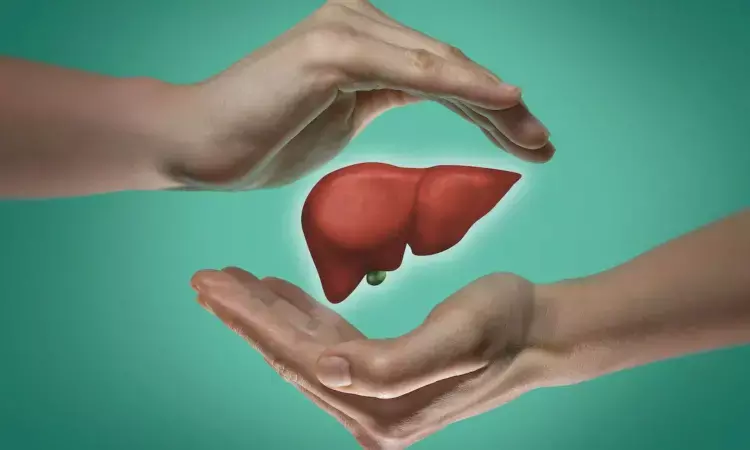- Home
- Medical news & Guidelines
- Anesthesiology
- Cardiology and CTVS
- Critical Care
- Dentistry
- Dermatology
- Diabetes and Endocrinology
- ENT
- Gastroenterology
- Medicine
- Nephrology
- Neurology
- Obstretics-Gynaecology
- Oncology
- Ophthalmology
- Orthopaedics
- Pediatrics-Neonatology
- Psychiatry
- Pulmonology
- Radiology
- Surgery
- Urology
- Laboratory Medicine
- Diet
- Nursing
- Paramedical
- Physiotherapy
- Health news
- Fact Check
- Bone Health Fact Check
- Brain Health Fact Check
- Cancer Related Fact Check
- Child Care Fact Check
- Dental and oral health fact check
- Diabetes and metabolic health fact check
- Diet and Nutrition Fact Check
- Eye and ENT Care Fact Check
- Fitness fact check
- Gut health fact check
- Heart health fact check
- Kidney health fact check
- Medical education fact check
- Men's health fact check
- Respiratory fact check
- Skin and hair care fact check
- Vaccine and Immunization fact check
- Women's health fact check
- AYUSH
- State News
- Andaman and Nicobar Islands
- Andhra Pradesh
- Arunachal Pradesh
- Assam
- Bihar
- Chandigarh
- Chattisgarh
- Dadra and Nagar Haveli
- Daman and Diu
- Delhi
- Goa
- Gujarat
- Haryana
- Himachal Pradesh
- Jammu & Kashmir
- Jharkhand
- Karnataka
- Kerala
- Ladakh
- Lakshadweep
- Madhya Pradesh
- Maharashtra
- Manipur
- Meghalaya
- Mizoram
- Nagaland
- Odisha
- Puducherry
- Punjab
- Rajasthan
- Sikkim
- Tamil Nadu
- Telangana
- Tripura
- Uttar Pradesh
- Uttrakhand
- West Bengal
- Medical Education
- Industry
Close relatives of people with fatty liver disease more prone to liver cancer and severe liver disease

Sweden: Close relatives and partners of patients with metabolic-associated fatty liver disease (MASLD, formerly known as NAFLD) have an increased risk of developing liver cancer and dying from liver-related diseases, a recent study has revealed.
The findings published in The Journal of Hepatology, imply that members could also benefit from the lifestyle advice that is currently only given to patients.
People with metabolic-associated fatty liver disease have an elevated risk of developing and dying from liver cancer. MASLD is now the main reason why the number of people developing liver cancer has risen so sharply. However, researchers at Karolinska Institutet now show that close relatives and partners also have an increased risk of developing liver cancer and advanced liver disease.
May benefit from early screening
“Our findings indicate that patients with MASLD should not be treated separately,” says the study’s first author Fahim Ebrahimi, doctor and researcher at the Department of Medical Epidemiology and Biostatistics, Karolinska Institutet. “Indeed, recommendations for lifestyle changes should be given to their family members as well. Our study also suggests that relatives with metabolic risk factors such as diabetes mellitus may benefit from early screening for MASLD.”
The researchers based their study on the ESPRESSO cohort, which contains data on all liver biopsies taken in Sweden from 1965 up to the present. They identified almost 12,000 people with biopsy-proven MASLD. After matching each person with up to five comparators from the general population they identified first-degree relatives (parents, siblings and children) and partners for both groups. The study included nearly 250,000 first-degree relatives and 57,000 partners.
Followed for up to 50 years
Over an average follow-up period of 17.6 years, with some individuals being followed for up to 50 years, the researchers found that first-degree relatives of MASLD patients were 80 per cent more likely to develop liver cancer than the controls. However, as liver cancer is a relatively rare disease, the absolute increase in risk is much lower: 0.11 per cent over 20 years, according to the researchers.
“In other words, one in every 900 first-degree relatives of patients with MASLD will additionally develop liver cancer over a 20-year period,” says senior author Jonas F. Ludvigsson, professor at the Department of Medical Epidemiology and Biostatistics, Karolinska Institutet. “So, the absolute risk is very small, but still relevant at a population level.”
Shared lifestyle is an important factor
The researchers also found that partners of patients with MASLD were more likely to develop severe liver disease (such as cirrhosis) and to die from liver-related causes.
“Our findings confirm that there is a clear familial risk of MASLD and that a shared lifestyle is an important factor in its development,” says Dr Ebrahimi.
The study was financed by the Swiss National Science Foundation (SNSF) and Karolinska Institutet. Fahim Ebrahimi and coauthors Hannes Hagström and Jonas F. Ludvigsson have all had financial ties to various pharmaceutical companies, primarily in the form of research grants for unrelated studies and consultancy fees.
Facts: It is estimated that one in four adults worldwide is affected by MASLD (metabolic dysfunction-associated steatotic liver disease), previously known as NAFLD (nonalcoholic fatty liver disease). However, the vast majority are unaware of their condition. The challenge for healthcare services is to find the small number of people who go on to develop more serious liver disease, such as fibrosis, cirrhosis or cancer. Finding ways to identify those at greatest risk is therefore a priority and the present study shows some easily identifiable risk groups.
Reference:
Fahim Ebrahimi, Hannes Hagström, Jiangwei Sun, Wen Yang, Bjorn Roelstraete, Jonas F. Ludvigsson, Familial Coaggregation of MASLD with Hepatocellular Carcinoma and Adverse Liver Outcomes: Nationwide Multigeneration Cohort Study, DOI:https://doi.org/10.1016/j.jhep.2023.08.018.
Dr Kamal Kant Kohli-MBBS, DTCD- a chest specialist with more than 30 years of practice and a flair for writing clinical articles, Dr Kamal Kant Kohli joined Medical Dialogues as a Chief Editor of Medical News. Besides writing articles, as an editor, he proofreads and verifies all the medical content published on Medical Dialogues including those coming from journals, studies,medical conferences,guidelines etc. Email: drkohli@medicaldialogues.in. Contact no. 011-43720751


